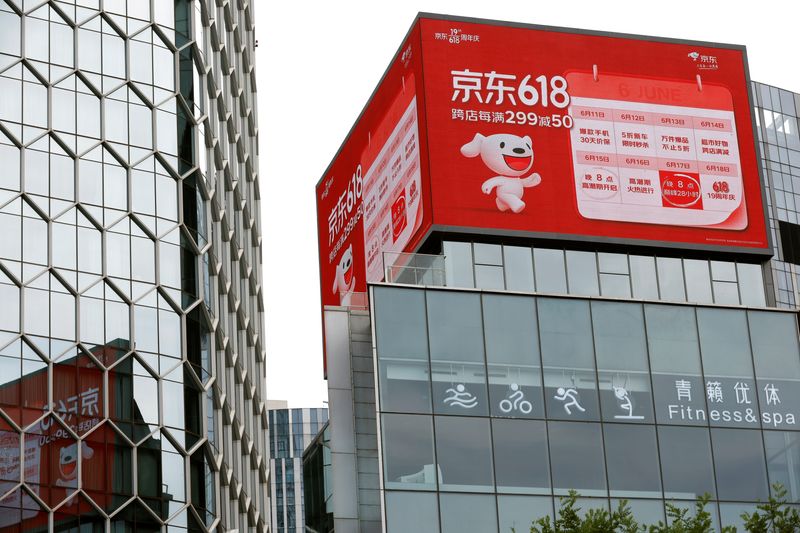Casey Hall and Sophie Yu
SHANGHAI (Reuters) – Sales in China's big mid-year e-commerce sales fell for the first time on record as consumers remained cautious about spending amid a faltering economy, according to third-party data estimates released on Wednesday.
Gross merchandise volume (GMV), a widely used indicator of e-commerce sales, reached 742.8 billion yuan ($102.36 billion) across China's major online platforms during the so-called “618” shopping event, down 7 percent from a year earlier, according to digital retail data provider Xintun.
618's sales have been growing even amid the pandemic, reaching a peak of nearly 800 billion yuan in 2023, according to Xintun.
This year's shopping festivals have failed to generate much excitement among shoppers, even as major platforms extended sales periods over several weeks to attract consumers looking to save money amid a bleak economic outlook, industry experts said.
The festival, named after e-commerce provider JD.com's founding date on June 18 and adopted across all platforms, is China's second-biggest annual sales event after November's Singles' Day and is seen as a key touchstone for household consumption.
China, the world's second-largest economy, is struggling with a protracted real estate crisis and high unemployment, which have had a major impact on consumer confidence.
“The buzz around 618 has faded as discounts become available throughout the year,” said Jacob Cook, CEO of e-commerce consultancy WPIC Marketing + Technologies.
JD.com said on Wednesday that its sales and order volume hit record highs during the festival, which ran from the end of May to June 18 this year. The company did not elaborate on the exact percentage increase in orders or sales during the festival, which first launched as a one-day sale in 2010.
Major companies including JD.com and Alibaba's Tmall and Taobao platforms have this year scrapped traditional pre-sale periods where shoppers could pay for products up front and complete their purchases later, instead extending the sales period itself.
Analysts said weak demand is forcing retailers to continually focus on low prices and thinner profit margins, increasing de-inflationary pressures.
Consultancy Re-Hub analyzed the discount strategies of luxury brands during this year's 618 Festival and found that nearly half of the brands tracked maintained or reduced their average discount from last year, while 20% increased their average discount.
Home appliances and beauty products
Alibaba previously noted in its 618 mid-season update that categories such as home appliances were doing well on its platform, led by brands such as Haier and Xiaomi.
The e-commerce giant said on Wednesday that sales on Tmall from international brands including Nike, L'Oreal, Lancome and Adidas exceeded 1 billion yuan ($137.82 million) in the period.
Apple is selling some iPhone models at discounts of up to 2,300 yuan ($318) through its Tmall flagship store in an effort to compete with domestic rival Huawei.
Alibaba said it sold more than 200 million yuan of Apple products within the first few hours of sales.
Pinduoduo, a unit of rival PDD Holdings Ltd., has not previously disclosed sales data for the 618 and did not immediately respond to a request for information.
With low prices now a common feature among Chinese consumers, it is becoming increasingly difficult for e-commerce platforms to maintain customer interest, even during traditionally successful sales festivals.
“To be honest, I don't always pay attention to 618 because there are too many (shopping festivals),” said Anita Meng, a university student from Hangzhou.
“Even though these festivals are still going strong, my wallet is already empty,” she said, adding that the only thing she bought at 618 was a gaming chair for her brother, which was discounted to 1,000 yuan from the list price of more than 1,200 yuan.
(1 dollar = 7.2570 Chinese yuan)
(Reporting by Casey Hall in Shanghai and Sophie Yu in Beijing; Editing by Kim Mi-young, Jamie Freed and Kim Ko-gill)


